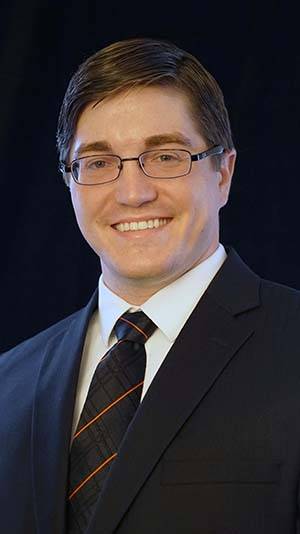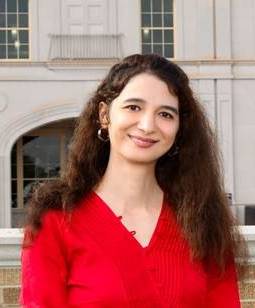
PhD in Business Administration Specialization in Management Information Systems (MIS)
MIS is an academic discipline that explores how information systems and data-centric
applications in businesses and organizations are designed and how they affect society,
behavior, and the economy. The study of MIS as a discipline includes topics such as
neuroIS, technology acceptance, behavioral decision making, information technology
governance, digital ethics, artificial intelligence and business analytics. Major
supporting disciplines include psychology, economics, operations research and computer
science.
Request Information
Program Requirements
Completion of the program requires a minimum of 60 semester credit hours beyond a bachelor's degree, not including dissertation hours from BA 8000. Students with a limited background in business will also be required to take additional leveling courses.
Typically, students complete all credit hours in residence at Texas Tech. Twenty-one semester credit hours must be taken in residence during a 12-month period. Generally, only three credit hours from outside institutions (provided there is an equivalent course at Texas Tech) may be counted toward the required 60 credit hours, if approved by the area’s doctoral coordinator.
As part of the required 60 credit hours, students must complete Advanced Statistical Methods (ISQS 5347) and Practicum in Higher Education for Business (BA 5395).
Program Overview
To excel in the Area of MIS, students must possess scholarly competence and actively contribute to the advancement of the management field through research efforts. This implies a broad knowledge of the subject and its literature, as well as a detailed understanding of current research in a specific sub-area of MIS. Students will complete both core MIS courses and specialized courses, which can be tailored to meet individual objectives and interests with the guidance of a faculty advisor.
All students are expected to have adequate familiarity with MIS basics. These are
defined by the following courses:
ISQS 7342 Advanced Topics in Information Systems and Quantitative Sciences
ISQS 7346 Seminar in Cognitive and Behavioral MIS Research
ISQS 7347 Seminar in Managerial and Organizational MIS Research
With the consent of their faculty advisors, students can choose a content-area concentration that matches their interests and career aspirations, such as getting hired, promoted or tenured. Seminar courses will touch each on content areas depending on the particular specializations of each faculty member teaching the course.
To ensure advanced development of analytical and research skills, students must pursue research methods as a supporting field. A minimum of nine credit hours (three courses) of supporting field coursework in research methods is required. Below is a non-exclusive list of potential research method courses.
ISQS 5349 Regression Analysis
ISQS 6348 Applied Multivariate Analysis
BA 6300 Advanced Business Research Methods; Structural Equation Modeling (SEM)
MGT 6381 Qualitative Methods & the Philosophies of Science
MGT 6381 Publishing Empirical Research and Scholarly Writing
BA 7000 Special Topics on Research Methods and Analysis
To reach the 60-hour requirement, students will work with faculty to determine the appropriate mix of elective and/or independent research coursework. Enrollment in these courses is associated with a student’s preparation for their doctoral dissertation proposal or other research projects. Because doctoral proposals and other independent research require substantial faculty resources, enrollment will reflect the time required of faculty.
Upon completion of coursework, students are prepared for intensive examinations. The Qualifying Exam will cover material from all doctoral seminars, research seminar series and may also include material from the supporting fields. Students are expected to go beyond courses through intensive self-study of the research literature. The Qualifying Exam is composed of two components: a written exam and an oral exam.
After successfully completing the qualifying examination, students are admitted to candidacy.The dissertation represents the culmination of the doctoral program in which a student learns and demonstrates the ability to conduct independent research.
Students should select a Doctoral Dissertation Committee as early as possible during their studies. Generally, most dissertation committees are composed of three or four total faculty members. The committee must include a chair who is typically chosen before the completion of coursework once the student has identified an area of interest. The committee chair may assist in refining a topic, suggesting potential committee members, and establishing a timeline and structure for the dissertation. Additionally, the committee must include one additional tenured or tenure-track faculty member from the Area of ISQS.
Catering to students with diverse backgrounds, interests, and expertise, our program offers flexibility and choice in curriculum, allowing students to choose courses that match their research interests.
Research
Our program aims to cultivate scholars who can conduct significant research in their chosen field. To enhance their research skills and develop strong competencies for conducting state-of-the-art research, students work closely with faculty in small classes, colloquiums, departmental workshops and seminars.
Students are also encouraged to interact with the professional community by attending and presenting papers at professional meetings. When possible, the Area of ISQS will provide financial support for this purpose.
Recent Graduate Placements
Our alumni have secured competitive faculty positions at prestigious institutions across the globe.
The following is a detailed list of the initial placements and dissertation topics of our recent doctoral graduates over the last five years.
Current Students
- 806.834.4959
- Faculty Directory
- BA 281
Rawls College of Business
-
Address
Rawls College of Business, Box 42101, 703 Flint Avenue, Lubbock, TX 79409 -
Phone
806.742.3188 -
Email
ba_webmaster@ttu.edu





